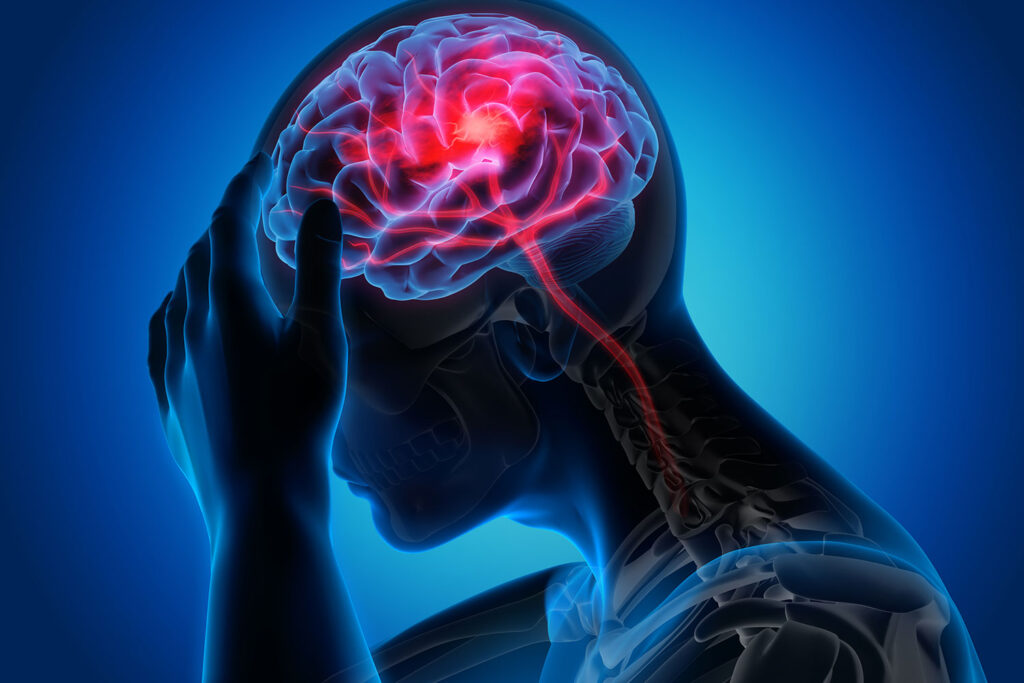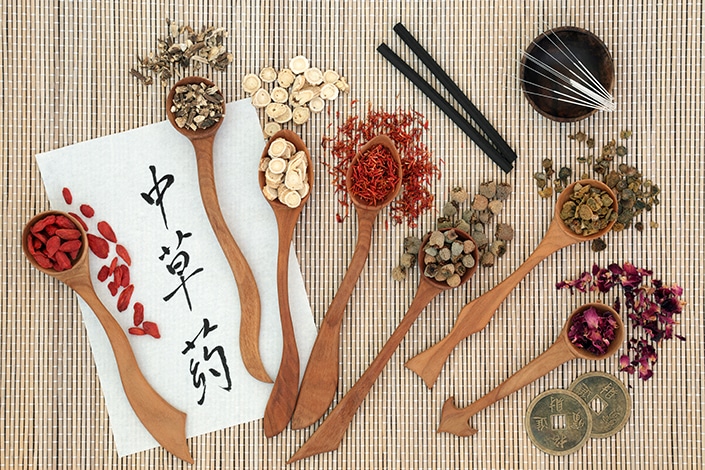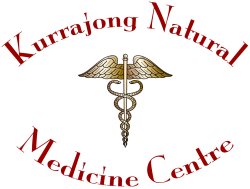Migraine Prophylaxis For Migraine Headaches
What are Migraine Headaches
Migraine Prophylaxis is key for sufferers of Migraine headaches, which is a complex and multifactorial brain disorder affecting approximately 18% of women and 5% of men and costing billions of dollars annually in direct and indirect healthcare costs and school and work absenteeism.
To date, there have been no medications that were designed with the specific purpose to decrease the number of migraine attacks.
Migraine headaches are a bit of a mystery. Researchers have identified possible causes, but they don’t have a definitive explanation. Potential theories include:
- An underlying central nervous disorder may set off a migraine episode when triggered.
- Irregularities in the brain’s blood vessel system, or vascular system, may cause migraines.
- A genetic predisposition may cause migraines
- Abnormalities of brain chemicals and nerve pathways may cause migraine episodes.

What Can Trigger a Migraine Headache?
There is no clear cause for migraine, however, the best way to avoid migraines is to prevent them from happening in the first place. There is a list of known trigger, the most common of with include: food, skipping meals, alcohol and caffeine, preservatives and artificial sweeteners, sensory stimulation such as bright lights, etc. hormonal changes, hormone medications, other medications such as vasodilators, mental stress, physical stress, sleep disturbances and weather changes. Factors such as age, family history and gender can increase the risk for migraine.
How Does Traditional Chinese Medicine (TCM) view Migraines
From the perspective of Traditional Chinese Medicine, migraine can be caused by internal and external factors. For internal factors, common patterns of migraine are Liver Qi (body’s bio-electricity) deficiency, Liver blood deficiency, blood stagnation. Chronic conditions caused by functional disorders of the Kidneys, Liver or Spleen can result in migraine as well.
For external factors, there are six external forces invade the human body to cause diseases. They are called the six external pathogens in Chinese medicine, namely Wind, Heat, Dampness, Fire, Dryness and Cold. The most common external factors of migraine are Wind-Cold, Wind-Heat and Wind-Dampness.

The treatment approach with Chinese medicine will differ from patient to patient, depending on the underlying cause (as listed above). Every person is different so there’s no ‘one-fits-all’ approach, however, several studies have shown that acupuncture used to prevent migraine headache is an effective and safe method of treatment.
In order to prevent migraines, it is important for the practitioner of Chinese medicine to establish what pattern is underlying the recurring migraines. Once this has been established the prevention of migraine headaches focuses on eliminating the underlying issue, which in turn will reduce the frequency, and in most cases the severity of the migraines.
Identification of triggers is and important aspect of preventing migraines. It is important for the patient to recognise and then avoid exposure to such triggers.
Traditional Chinese Medicine (TCM) takes a holistic approach to treating migraines by addressing the underlying imbalances in the body. According to TCM principles, migraines are often attributed to an imbalance in the body’s energy flow (Qi), specifically related to the liver and the channels associated with it. Some common TCM approaches to treating migraines include:
Acupuncture: Acupuncture involves the insertion of thin needles into specific points on the body to stimulate and balance the flow of energy. In the case of migraines, acupuncture can help relieve pain, reduce the frequency and intensity of migraines, and address the underlying imbalances causing the condition.
Herbal Medicine: TCM practitioners may prescribe specific herbal formulations tailored to each individual’s unique pattern of imbalance. Commonly used herbs for migraines include, for example, Chuan Xiong (Ligusticum chuanxiong) and Gastrodia (Gastrodia elata). These herbs promote better circulation, alleviate pain, and soothe the liver.
Dietary and Lifestyle Modifications: TCM emphasises the importance of a healthy lifestyle and dietary habits to prevent and manage migraines. This may involve avoiding trigger foods, such as processed foods, caffeine, alcohol, and certain strong flavours. Regular exercise, stress reduction techniques (such as Tai Chi or Qi Gong), and sufficient rest are also recommended.
Tui Na Massage: Tui Na is a form of Chinese therapeutic massage that involves applying pressure and manipulation techniques to specific points and areas of the body. Tui Na can help relieve tension, promote blood circulation, and reduce headache symptoms.
Qi Gong and Tai Chi: These ancient practices combine gentle movements, breathing exercises, and meditation to promote the flow of energy and restore balance in the body. Regular practice of Qi Gong or Tai Chi may help reduce stress, improve circulation, and alleviate migraines.
At Kurrajong Natural Medicine Centre we aim to help patients to identify the triggers that may lead to migraines and work on addressing the underlying TCM pattern causing their migraines. We then work out a treatment program which is specifically designed to prevent migraine headaches.
What You Can Do to Help Yourself If You Suffer From Migraine Headaches: Migraine Prophylaxis
Life-style choices are one important aspect of reducing the frequency and intensity of migraines. The following are examples of how to minimise headaches:
- Regular cardio-vascular exercise: by improving your circulation and overall health of the cardio-vascular system is one way to help balance the circulation of blood to the head
- Relaxation/Meditation: regularly engaging in meditation and relaxation is beneficial to the mind-body interaction and will help in reducing both physical and mental stress, either of which are known triggers for migraines
- Adequate and good quality sleep: set a regular time to go to bed and get up in the morning. Do not take work to bed and do not use your phone or tablet when in bed. The bedroom is for sleeping, not an office. Start winding down about 30 minutes before going to bed by reading a book or listening to some soothing music. Make sure you get about 7 hours of sleep each night.
- Eat wisely: reduce or eliminate processed food from your diet. Eat seasonally available food and if possible grow some of your own vegetables. Working in the garden is a relaxing and fulfilling activity and will also help you with managing stress.
- At the first sign of a headache stop what you’re doing, turn off lights and site quietly. Some patients find if they drink a cup of coffee or eat a little dark chocolate they can prevent a migraine from coming on. Using hot and cold may help to stop a migraine. Place an ice pack on the back of the neck and put your feet into very warm water (as hot as you can stand). This forces blood to your feet; away from your head and thus helps with preventing the throbbing and reduces the pain in the head.
Identify Triggers: Pay attention to potential triggers that can set off your migraines, such as certain foods, bright lights, strong smells, hormonal changes, stress, or lack of sleep. Keeping a headache diary can help you identify patterns and avoid triggers.
Manage Stress: Stress is a common trigger for migraines. Incorporate stress management techniques into your daily routine, such as practicing relaxation exercises, deep breathing, meditation, yoga, or engaging in activities you enjoy.
Establish Regular Sleep Patterns: Aim for consistent sleep patterns by going to bed and waking up at the same time each day. Create a relaxing bedtime routine, ensure your sleep environment is comfortable, and limit exposure to electronic devices before sleep.
Maintain a Healthy Lifestyle: Eat a well-balanced diet, stay hydrated, and avoid skipping meals. Regular exercise, such as aerobic activities, can help reduce the frequency and intensity of migraines. Limit your intake of alcohol and caffeine, as they can trigger migraines in some individuals.
Apply Cold or Heat: Placing a cold or warm compress on your forehead or the back of your neck may provide temporary relief. Experiment with both cold and heat to determine which works best for you.
Relaxation Techniques: Explore relaxation techniques such as progressive muscle relaxation, guided imagery, or biofeedback to help relax your body and reduce migraine symptoms.
Over-the-Counter Pain Relief: Non-prescription pain medications, such as ibuprofen or aspirin, may help alleviate mild to moderate migraines. However, it’s important to follow the recommended dosage and consult with a healthcare professional if you have any underlying medical conditions.
Dark and Quiet Environment: When experiencing a migraine, find a quiet and dark room to rest in. Avoid bright lights and loud noises, as they can worsen symptoms.
Stay Hydrated: Dehydration can trigger migraines in some individuals. Drink plenty of water throughout the day to stay hydrated.
Seek Professional Help: If your migraines are severe, frequent, or significantly impact your daily life, consult with a healthcare professional. They can provide a proper diagnosis, prescribe medications if necessary, and offer additional guidance for managing your migraines.
Remember that self-help strategies may vary from person to person, and it’s important to find what works best for you. If your migraines persist or worsen despite self-help measures, it is advisable to seek medical advice for a comprehensive evaluation and appropriate treatment.
Randomized Controlled Trial > 2012 Mar 6;184(4):401-10. doi: 10.1503/cmaj.110551. Epub 2012 Jan 9.
Acupuncture for migraine prophylaxis: a randomized controlled trial
Affiliation
1. Chengdu University of Traditional Chinese Medicine, Chengdu, Sichuan, China.
Abstract
Background: Acupuncture is commonly used to treat migraine. We assessed the efficacy of acupuncture at migraine-specific acupuncture points compared with other acupuncture points and sham acupuncture.
Methods: We performed a multicentre, single-blind randomized controlled trial. In total, 480 patients with migraine were randomly assigned to one of four groups (Shaoyang-specific acupuncture, Shaoyang-nonspecific acupuncture, Yangming-specific acupuncture or sham acupuncture [control]). All groups received 20 treatments, which included electrical stimulation, over a period of four weeks. The primary outcome was the number of days with a migraine experienced during weeks 5-8 after randomization. Our secondary outcomes included the frequency of migraine attack, migraine intensity and migraine-specific quality of life.
Results: Compared with patients in the control group, patients in the acupuncture groups reported fewer days with a migraine during weeks 5-8, however the differences between treatments were not significant (p > 0.05). There was a significant reduction in the number of days with a migraine during weeks 13-16 in all acupuncture groups compared with control (Shaoyang-specific acupuncture v. control: difference -1.06 [95% confidence interval (CI) -1.77 to -0.5], p = 0.003; Shaoyang-nonspecific acupuncture v. control: difference -1.22 [95% CI -1.92 to -0.52], p < 0.001; Yangming-specific acupuncture v. control: difference -0.91 [95% CI -1.61 to -0.21], p = 0.011). We found that there was a significant, but not clinically relevant, benefit for almost all secondary outcomes in the three acupuncture groups compared with the control group. We found no relevant differences between the three acupuncture groups.
Interpretation: Acupuncture tested appeared to have a clinically minor effect on migraine prophylaxis compared with sham acupuncture.
Trial registration: Clinicaltrials.gov NCT00599586.
Disclaimer
Disclaimer information for users of the Kurrajong Natural Medicine Centre, Namaste Yoga Kurrajong and The Herbal Health Coach website.
Page last updated: 24th June 2023
Information provided for education and research information only
The information on this website is presented by Kurrajong Natural Medicine Centre for the purpose of disseminating health information free of charge for the benefit of the public.
While Kurrajong Natural Medicine Centre has exercised due care in ensuring the accuracy of the material contained on this website, the information on the site is made available on the basis that Kurrajong Natural Medicine Centre is not providing professional advice on a particular matter.
This website is not a substitute for independent professional advice. Nothing contained in this site is intended to be used as medical advice and it is not intended to be used to diagnose, treat, cure or prevent any disease, nor should it be used for therapeutic purposes or as a substitute for your own health professional’s advice.
Kurrajong Natural Medicine Centre does not accept any liability for any injury, loss or damage incurred by use of or reliance on the information provided on this website.
Quality of information
Kurrajong Natural Medicine Centre makes every effort to ensure the quality of the information available on this website and updates the information regularly. Before relying on the information on this site, however, users should carefully evaluate its accuracy, currency, completeness and relevance for their purposes, and should obtain any appropriate professional advice relevant to their particular circumstances. Kurrajong Natural Medicine Centre cannot guarantee and assumes no legal liability or responsibility for the accuracy, currency, completeness or interpretation of the information.
The material may include the views or recommendations of third parties and does not necessarily reflect the views of Kurrajong Natural Medicine Centre or indicate a commitment to a particular course of action.
Links to other websites
This website contains links to other websites which are external to Kurrajong Natural Medicine Centre. Kurrajong Natural Medicine Centre takes reasonable care in selecting linking websites but Kurrajong Natural Medicine Centre accepts no responsibility for material contained in a website that is linked to this site. It is the responsibility of the user to make their own decisions about the accuracy, currency, reliability and correctness of information contained in linked external websites.
Links to external websites are provided for the user’s convenience and do not constitute an endorsement or a recommendation of any third party products or services offered by virtue of any information, material or content linked from or to this site. Users of links provided by this site are responsible for being aware of which organisation is hosting the site they visit.
Views or recommendations provided in linked sites may include the views or recommendations of third parties and do not necessarily reflect those of Kurrajong Natural Medicine Centre or indicate a commitment to a particular course of action. .



